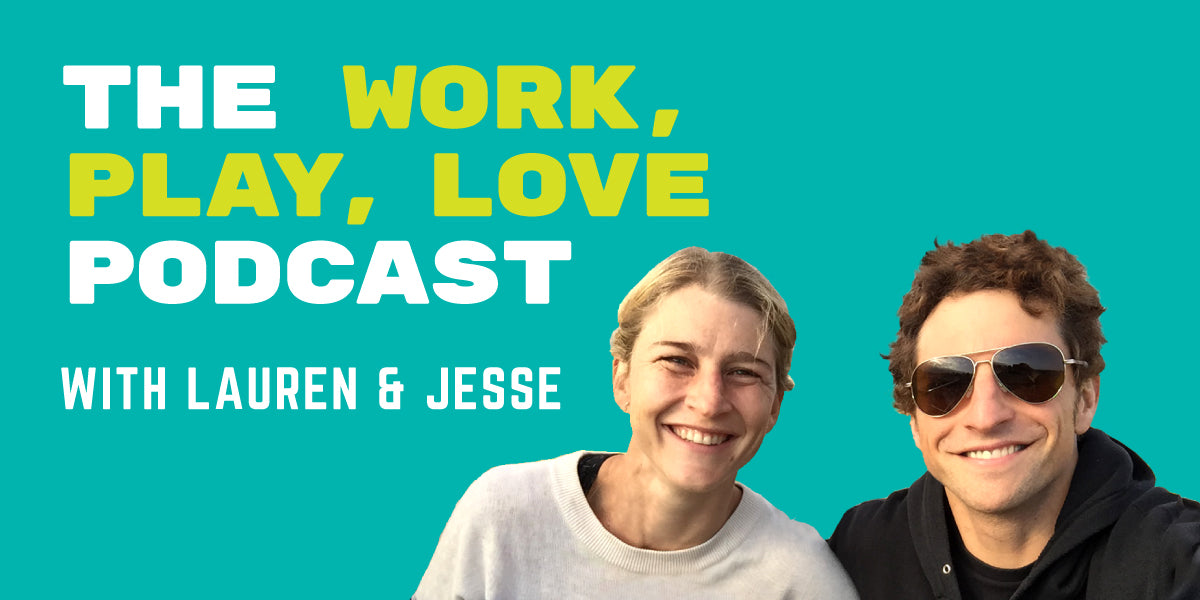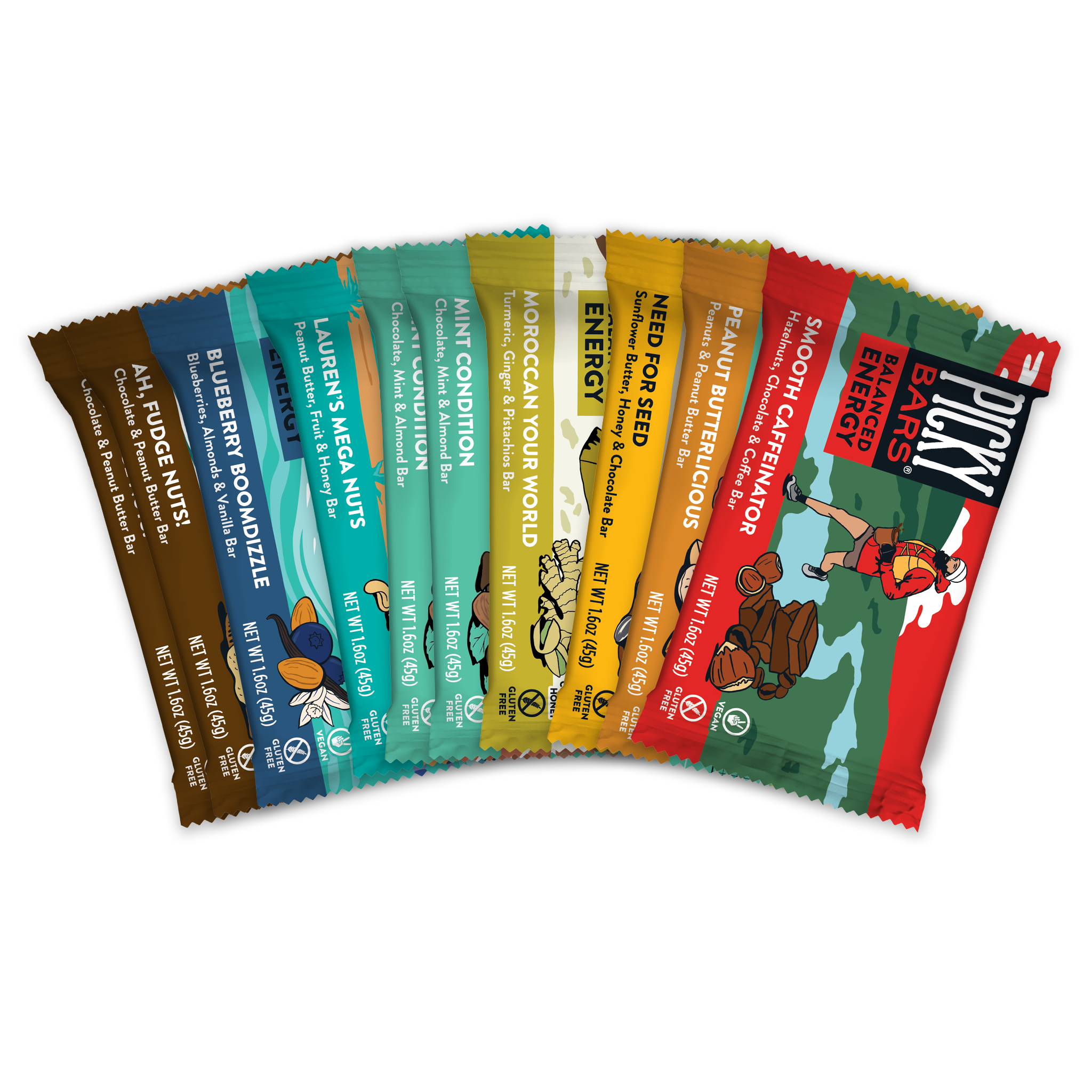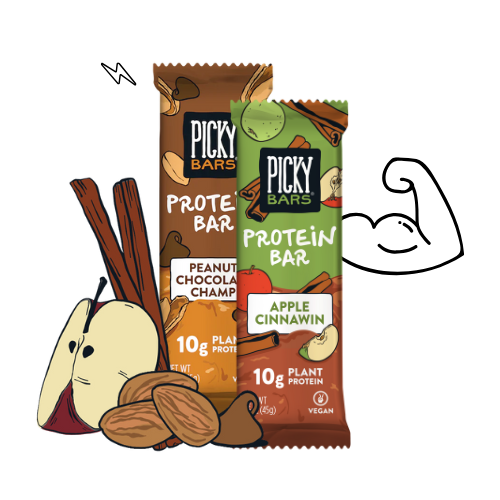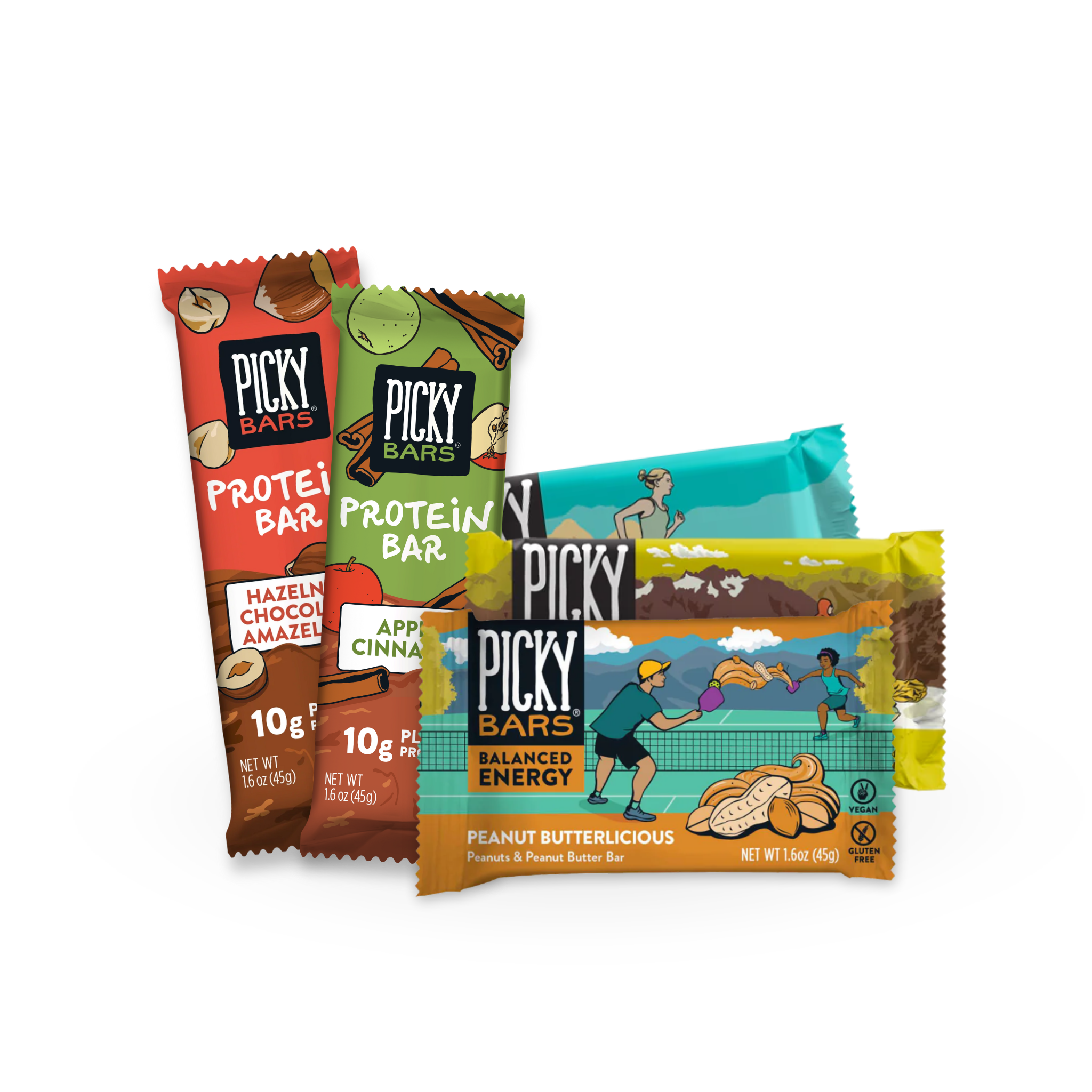

· By Sarah Conklin
34: Training Plans, Baby Sleep, Jealousy & Poop
Juggling work-life balance can be a real three-ring circus, which Lauren & Jesse know first hand. Led by listener questions, this new podcast is all about sports, biz, and family. [ASK YOUR QUESTION]
34: Building Your Own Training Plan, Pooping While Racing, Baby Sleep, Jealousy
iTunes | Spotify | Google Play | Stitcher
Description:
Jesse’s been at home with two sick kids for almost weeks straight, Lauren’s just back from an epic trip to New York for the indoor championships, and the two talk about their experiences during the 2019 Snowpacalypse in Bend. Now, they’re cozied up in their little studio ready to field your questions. Today Lauren and Jesse tackle your hard hitting questions about building your own training plan, dealing with the urge to poop while racing, the challenges of sleep training your baby, and jealousy in relationships.
Warm-up laps
10:32 - I’m a seasoned runner and try to fit strengthening into my workouts. But I hate going to the gym. In episode 30, you mention going to the gym in the morning to lift before a workout. Does any pro runner actually do this? When do you lift? When do you tell your pro athletes to lift?
L: I can’t speak for other pro athletes, but I would be surprised if most pro runners hadn’t heard of this suggestion. When I was running professionally, I did lift in the morning and then run in the afternoon, and I enjoyed it. The first few times I did it, I had jello-y legs on my run, but then I adapted and really liked it. Yes, I am working with Jay Dicharry to integrate strength training with the athletes I coach, and I’m excited to see how it goes!
14:36 - What do you do for cross training or strength training when not running, biking, or swimming?
J: I don’t do a ton of cross training when I’m training for triathlon because everything feels like I’m both training for my event, and also cross-training. What I do for cross training—Nordic skiing, which I really love, mountain biking, and a little bit of rock climbing.
L: The most effective cross training I ever did was in 2012 when I started swimming. I always thought you needed to elliptical or bike if you couldn’t run, because they’re the most similar to running. Plus, I didn’t grow up a swimmer, so it wasn’t on my radar. But then I noticed that other runners, like Nick Symmonds, and people like Jesse would swim, and the cumulative effect was really clear. So I started swimming more when my IT band issue was at its worst, and that year I qualified for the Olympic trials. So I think that says a lot about swimming as cross training.
18:48 - I just moved to Bend from Portland and I wonder if you guys have any advice on acclimating to the altitude in terms of running.
L: To me, when I’m coaching athletes I do a lot of the same things you might do at sea-level. You may just want to build in extra recovery if you plan to maintain your sea-level pace. The other thing you can do is add time to your mile pace and then keep your recovery times the same.
J: Yes, I tend to add time to my running paces—like 10s per mile. For biking and swimming it’s similar—I add time or change my power output to compensate for higher altitudes.
The Meat and Potatoes
21:43 - Do you have any tips or universal advice for structuring your own training plan?
J: When it comes to triathlon performance, I will always be the first person to say that I think getting a coach is really the best investment you could make. Way more than a nice bike or helmet. And I would challenge the notion that coaches come at a premium price tag.
L: I agree. You could always hire a coach for a season, or ahead of an important race. Then you can learn from what the coach structures for you. After the race, you can fire the coach if you want, and you’ll still have a skeleton training plan to build on.
J: The reason why I recommend a coach is because this stuff really is very individualized. And so it’s really tough to spitball recommendations that can be universally applied. The main thing I do is adjust the plan my coach has made for me. The way I do that is that I listen to my body very well, and make changes based on what has worked well for me (results), and what I respond best to.
L: I completely agree with Jesse, but if I were to take a crack at blanket advice—and this is very high level—but if you’re absolutely not going to get a coach, here is a very general way to structure training. Take your year, split it into two seasons. Pick an A race at the end of each season. Something you’re excited about working up to. Then structure your season like this: begin with rest and rejuvenation coming out of your last race. Try different things to be active that are outside of your training plan. Then endurance building—build up the number of hours safely and gradually that you spend on your event. Then, once you have your volume, start building in special workouts, interval sessions. Push yourself, and let yourself get better. Lastly, you have your competition phase. That’s the last phase of the cycle. Here you’re training for your race, you have key workouts, your resting for the race, you’re simulating your race. Your hard days are hard and your easy days are easy. Then you go out for your target race. And then you rest and begin your next cycle for the next season’s race six months away.
J: I completely agree with everything Lauren said. The two things I’ll add is that the biggest mistake I see self-trainers make is that they go too hard on their easy days, so recovery is very important. And then for me, I’ll throw in a sort of practice race 3-6 weeks out from my A race to get a simulation in.
31:20 - When training for my first 70.3 (triathlon), I learned that using only liquid or semi-solid fuel meant major water-belly. So included Picky Bars in my nutrition to have a mix of solid and liquid foods. But other triathletes act like I’m crazy when I tell them this. They say that having solid foods would make them poop on long-course events. I worry about this—how do long-course athletes stay fueled, and how do you avoid needing to poop while racing if you want to have solid foods?
J: First of all—everyone is different. I know some athletes who can eat pizza out on a long course and be fine. And I know other athletes who are much more sensitive. In every single one of my Ironman and half-Ironman races, I have eaten solid food and I’ve never needed to stop for a potty break.
What I do to actively avoid having to poop during a race is I significantly decrease my ruffage ingestion 48-72 hrs before the race. That means I don’t eat a ton of veggies or fruits or fibrous stuff. I basically cut that out. I get to simpler and simpler foods. This is primarily before an Ironman where there’s a higher possibility you would run into a problem. Things like chicken, skinned potatoes, avocado the night before. Overnight Matcha Picky Oats the day of the race, because the little bit of caffeine helps bring the poops out. That means I’m empty before I start my race, and it means I can eat solid foods during, which I do think really helps particularly when you’re out for 10 or more hours.
The best thing to do is test. See how you do with solid foods in different training scenarios. It sounds like you do well with solid foods on your shorter distances, so you may be OK on the longer ones!
L: Definitely agree with everything that Jesse said. And in my experiences crewing for ultra marathons, the runners always consume solid foods. There’s solid food out there on the course. Some of these athletes are out there for 17 hours…24 hours. And also: stopping to poop at a toilet is not the worst thing in the world.
J: That’s a good point. I’ve never won or lost a race by a “porta-potty distance.” And there are plenty of portable toilets out on these courses.
L: Do you guys pee your pants on the run and on the bike?
J: Yes. I mean, hopefully not a lot if you’re hydrating properly. Pretty gross, but it does happen.
38:07 - My question is a pretty hot topic for new parents: sleep. The sleep deprivation that comes along with a new baby has rocked my world. My son, who is 9 months has never been a great sleeper. The lack of sleep has impacted many areas of my life, but one of the biggest ways is how it has altered my ability to run and train. I find myself having a harder time getting motivated to run, and have a harder time recovering from workouts. What have your experiences been with your children? How have you coped with the lack of sleep athletically and in your personal lives? How have you been able to train and perform at a high level in spite of not getting a full night’s rest?
J: I hate how much shaming there is around this topic. And I feel like a lot of parents share their perspective like they know what’s right—and I hate that. The reality is that everyone is different and every child is different. Every kid is going to respond a little differently to “conventional” wisdom out there around sleep training. So whatever we have to say here, we do not ever judge what any parent decides to do around sleep and their kid.
L: At our baby shower for Jude, a family friend who is a sleep doctor gave us a well-worn copy of Healthy Sleep Habits, Happy Child. While there are issues with this book—like the fact that it is heteronormative, or assumes that the woman will be doing most of the work—it is evidence-based. And I find that the author is the least shame-y and the most acknowledging of the complexity of children’s sleeping habits. It doesn’t present a clean easy plan to get your child to sleep, but it’s honest. Despite the fact that it has issues, and it’s a rather messy book with a lot of sections, it does address sleep for children up to many ages, and it’s the resource I return to again and again.
All that said, these things may not work for your baby. We have friends who have kids who aren’t great sleepers. And the best thing to know, is that this is a stage, and it will pass. It may not be the most comforting thing to hear in the moment but it’s the truth. It won’t be like this forever. And in fact, the 9-month point is a pivotal point for kids and sleep, so it may get better sooner than you think. After nine months, babies do tend to sleep more.
Jesse and I are firm believers in “cry it out” will not permanently damage your kid. And when we were both professional athletes when we had our first kid, there were times when we definitely let our kid cry it out—and we had good results from this.
J: That’s what we’ve done. And I will say that even if your kid is sleep-trained, they still wake up. And so in those times, you need to recognize how you feel and you need to adjust your training accordingly. Take it easy when you are getting less sleep—skipping a workout—those are the types of things we do if we’re sleep deprived and it doesn’t feel appropriate to try and push through it. Otherwise you are putting yourself at greater risk of injury.
47:36 - In your on-again-off-again relationship through the years how did you deal with disappointments and the challenges that come with that kind of relationship? Have you dealt with jealousy in seeing your partner go on solo workouts with members of the opposite sex? If so, how did you deal with it?
L: This is a tough question. I think feelings of jealousy are natural when it comes to your partner spending time with others, especially if you are sidelined with an injury as you mention in your question. I also think that the power or size of those emotions can be related to your feelings of satisfaction with your own life. And if you’re not feeling great about your life, those feelings can be much bigger. And when you want to be partnered, and you feel like that part of your life is hanging in the balance or isn’t coming together, that’s a hard place to be!
I remember in the times that Jesse and I were apart, and I was walking through the world, loving someone but not having it working out—my default state felt like I had a rain cloud over my head. I wasn’t depressed all the time, but it affected every aspect of my life.
J: This question did remind me of our experience, because we were on and off again for a long period of time, like your question describes. And while we weren’t ever engaged, we did think we were going to be married and then we would break up, seemingly for good.
Ultimately, I needed my own space and time to figure out who I was and who I wanted to be that was independent of Lauren. When I became more comfortable with who that person was, that was when things with Lauren started to click again.
L: That’s really well put. Another thing to think about is seeking therapy. I found that seeing a therapist was really important and really helpful to my personal growth. Because just what Jesse described about needing to be more comfortable with himself? That happened to me when my racing career was ending, and when my father passed away from terminal cancer. That was an incredibly hard time for me, and it wasn’t a great time for Jesse and I. I remember feeling sort of abandoned—and perceiving that the time Jesse spent training wasn’t just about working toward a goal, but it was also about an escape from time with me. Therapy really helped me in that time—it helped me process my grief, it helped me grow into those changes and transitions, and it helped me be a better partner in the end.
J: Yes—and when it comes to jealousy? We’re at a very different stage in our relationship now, so that would never really bother me. Back when we were having trouble? Maybe? But I think it comes down to having the confidence in yourself and in the relationship and knowing that the person is going to come back to you. Can you have the trust in yourself and in the other person.
L: I think that’s a good goal. That’s something good to work toward. Because when you think about your partner spending time with someone that they may or may never develop romantic feelings toward, do you want to restrict their behaviors or activities? If so, is that something you would feel comfortable with being reflected back on you? Every relationship can be built with whatever structures and rules the people in the relationship agree on—and I think that’s fine. For me, conditions that optimize individual freedom and recognize that no matter how together you are, you’re still two different people are important. And being yourself in the world is an important part of a relationship. We tend to work toward maximum freedom and trust, and that’s our goal. And we talk about it when we feel uncomfortable and try to figure out where that’s coming from.
Follow-ups
59:08 - I just wanted to follow up with the person who felt mediocre while trying to be a mother, runner, and PhD student simultaneously. As a former grad student (I have an MA in the humanities), I just wanted to say that the feeling of being mediocre as a PhD student is extremely common. In addition to Lauren and Jesse’s advice, you might try reaching out to other students in your cohort to see if they’ll get together once and awhile to share and vent. When I was in school I was trying to balance work, my classes, and being a newlywed. I always felt like I did a crummy job. It wasn’t until after I graduated when I was watching my former classmates on social media that I realized everyone felt like they were doing a crummy job and that it wasn’t just me. I wish I had reached out more and made an effort to talk about it with them while we were still in grad school.
As always, submit your work/play/love question at pickybars.com/workplaylove - Thanks for listening!

[ PAST EPISODES + DESCRIPTIONS ]





